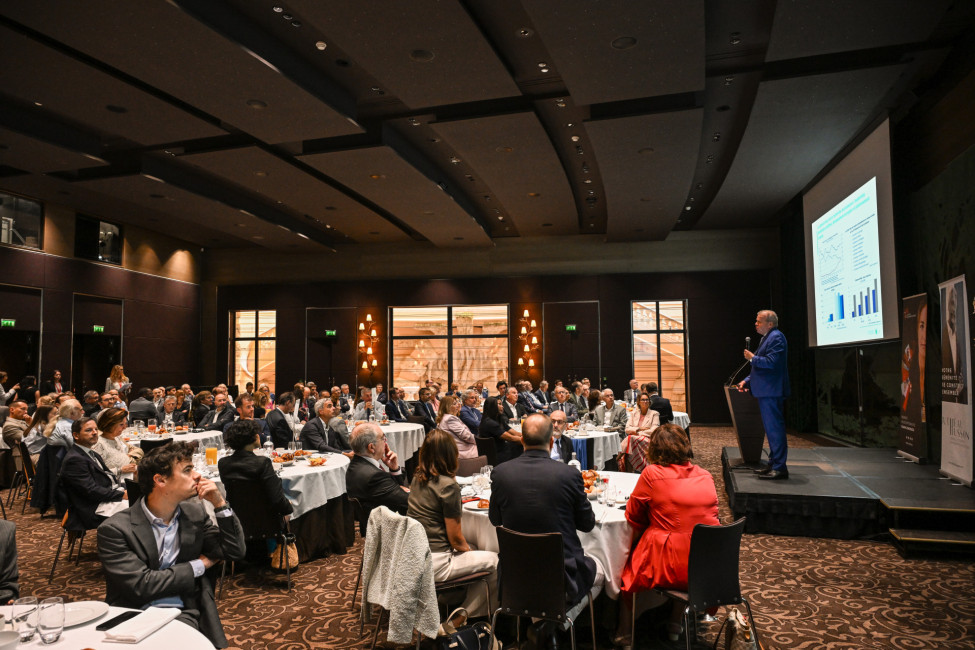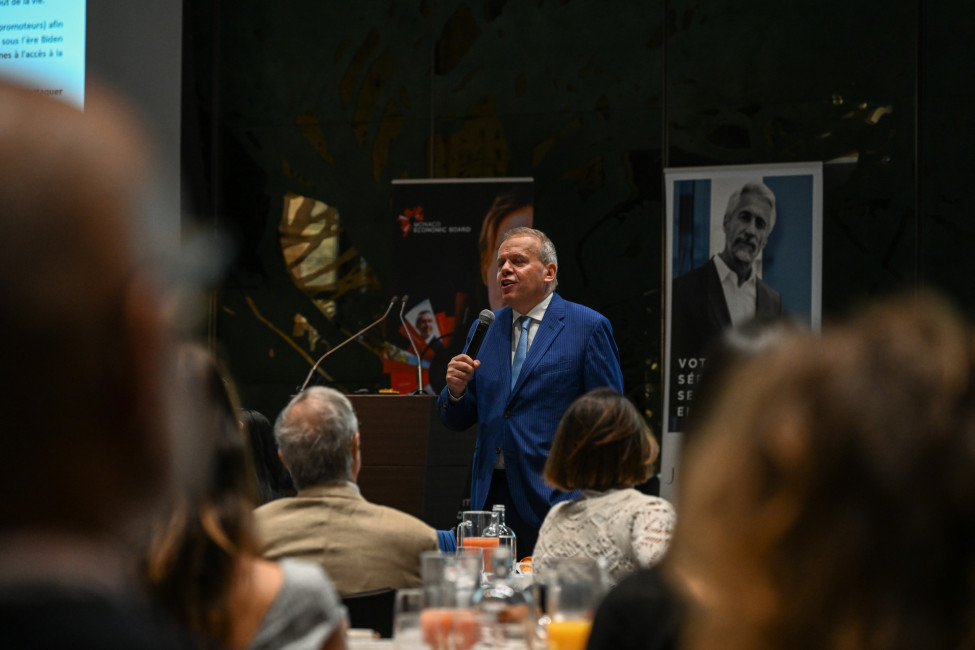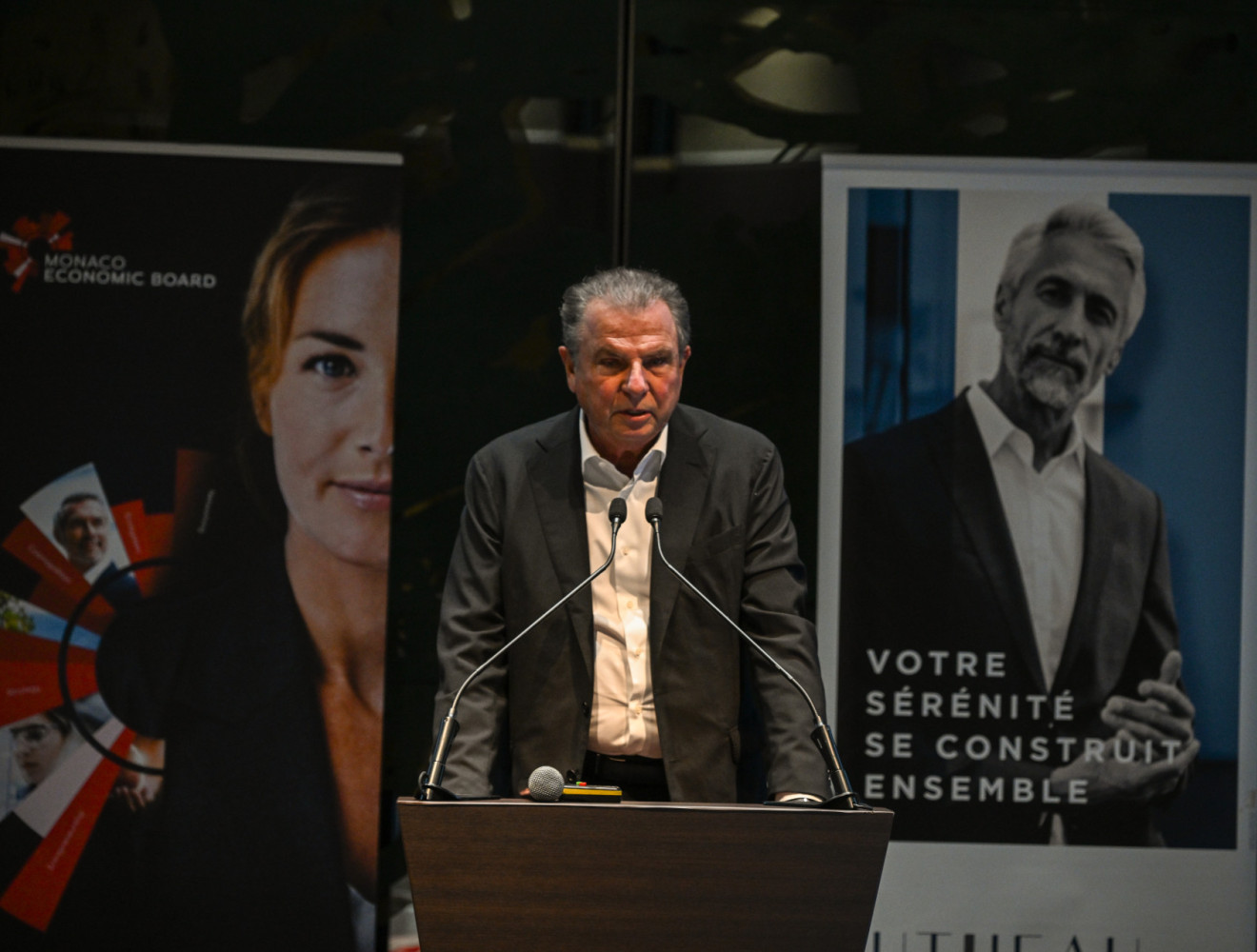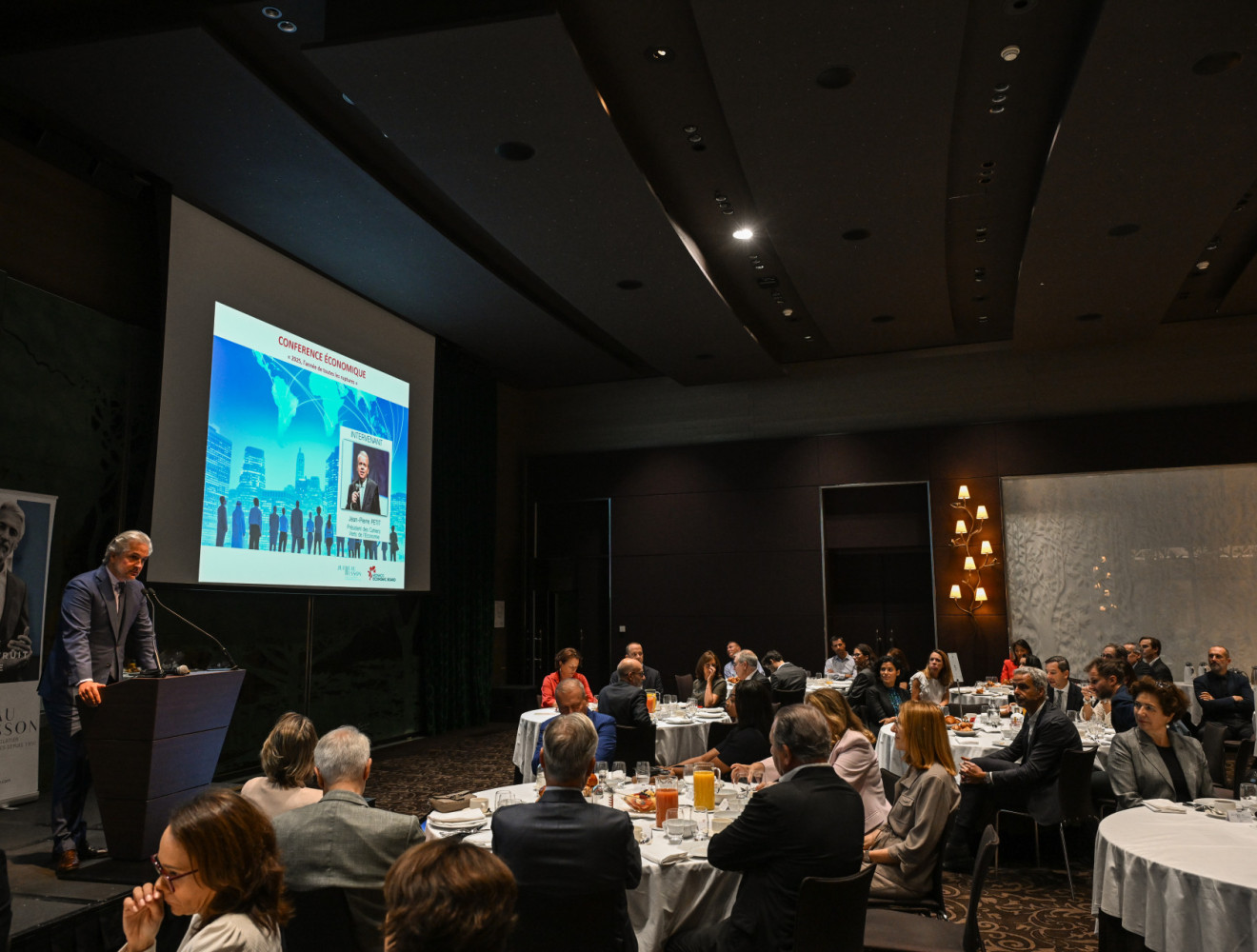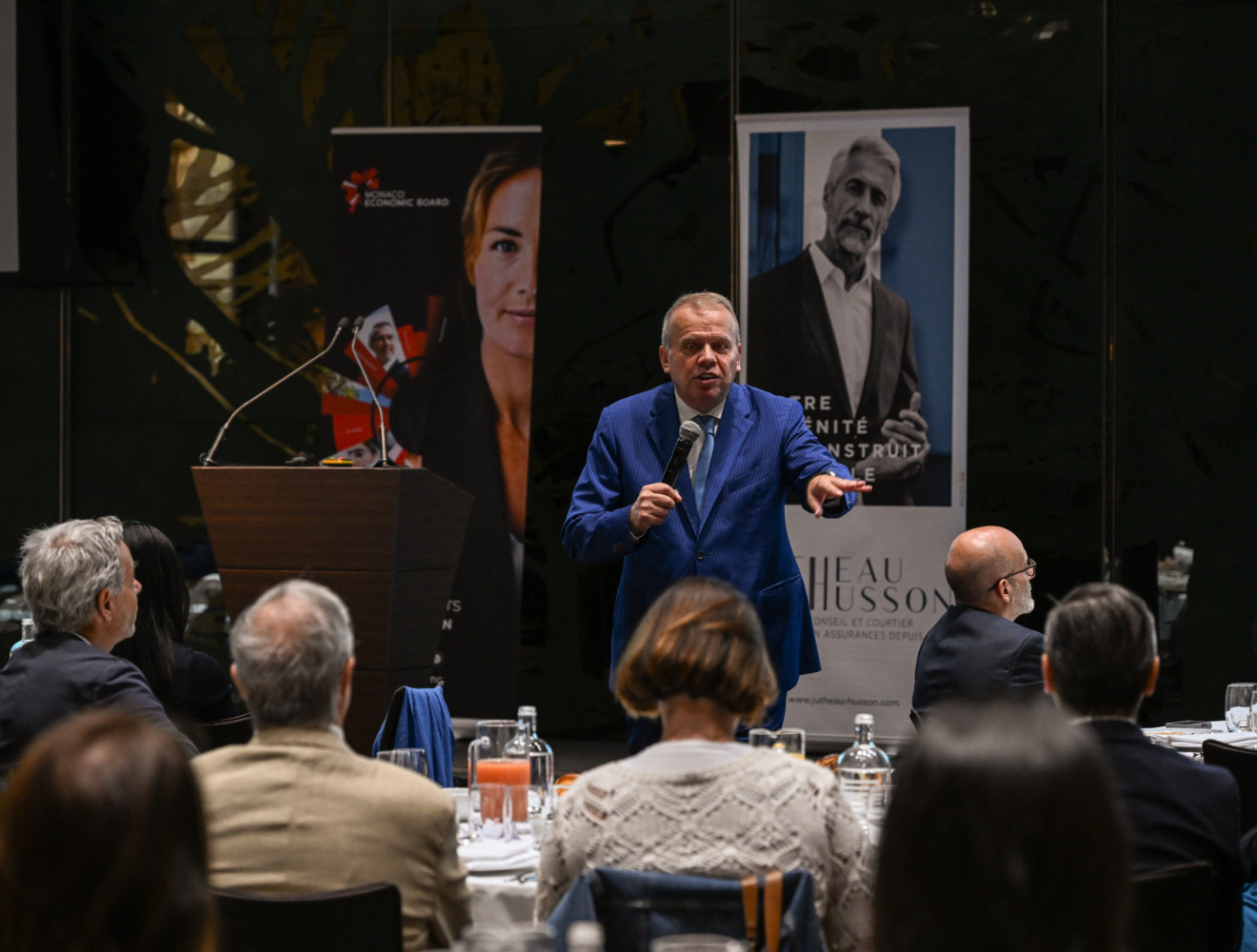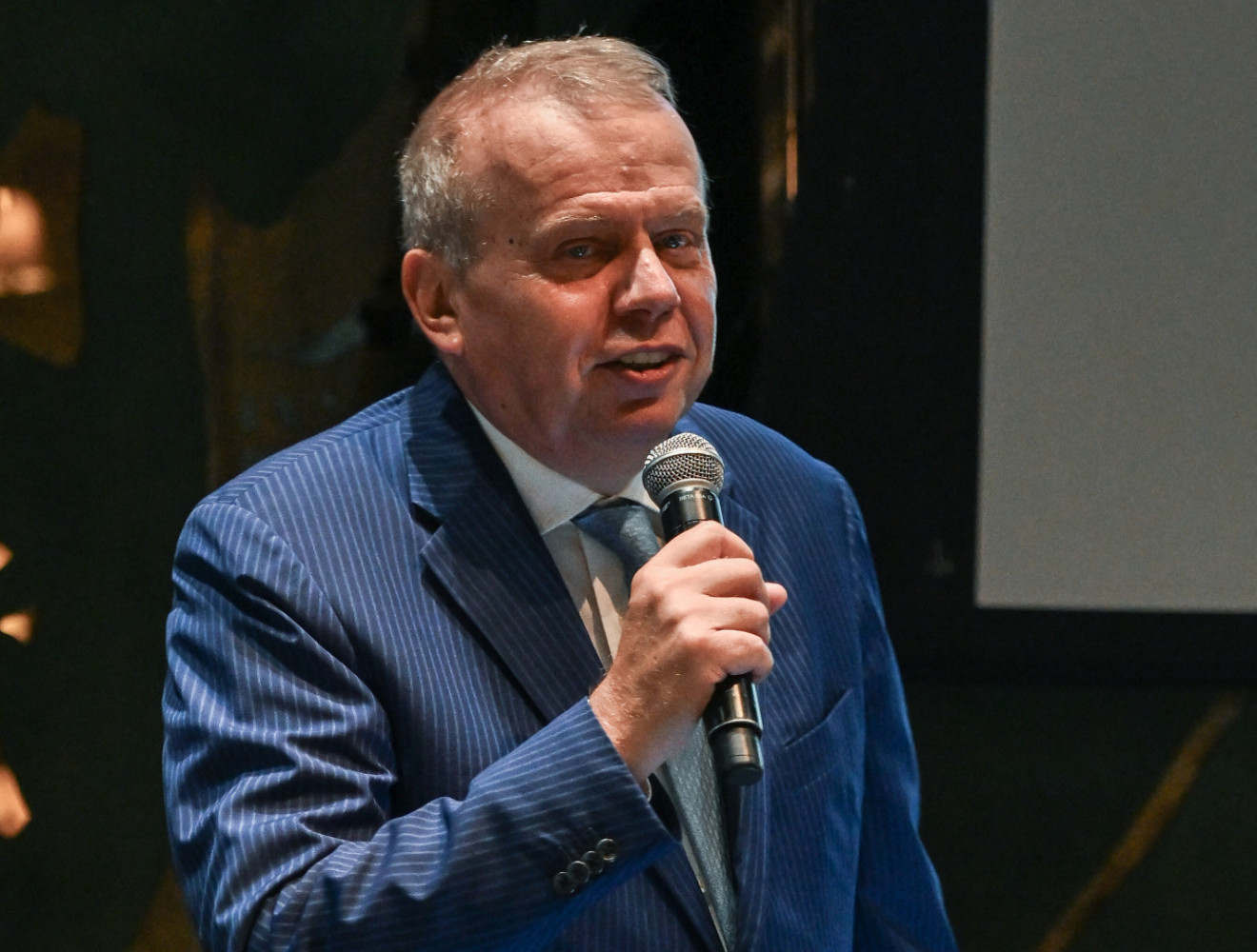Jean-Pierre Petit talks to MEB members about a « fractured » world
On Friday 13 September at the Hôtel Hermitage Monte-Carlo, the Monaco Economic Board launched its autumn season alongside its loyal partner and member, insurance broker Jutheau Husson, with a lecture by economist Jean-Pierre Petit. The Chairman of the Cahiers Verts de l’Économie once again gave a remarkable account of the global economic and financial situation, covering the US elections, the situation in Europe and China, and market analysis and forecasts.
First and foremost, the economist noted a multi-faceted increase in conflict (economic, military, commercial, technological, energy), with an increase in restrictions on free trade. As a result, the global economic growth trend is moderate for all countries, with the only « booster » being India, which is taking off.
Another country that is doing well is the United States, thanks in particular to its low dependence on external energy, a flexible production system and rapid political decisions, the excellent decisions of the US central bank, an unrivalled capacity for innovation, the strength of the dollar and, not forgetting a « key variable » : productivity, which has been on the rise for the last two years. And the outcome of the presidential elections is unlikely to change things, even if a Trump victory would be more complicated for Europe because of increased protectionism against it.
China, for its part, is experiencing a certain levelling-off in its expansion, despite a high-performance industrial base (in electric cars in particular), increased independence from the rest of the world and domination over certain countries thanks to the New Silk Roads. But its productivity is sluggish, the property sector is struggling to emerge from the crisis and its population is falling.
As for Europe, according to Jean-Pierre Petit, it is losing ground almost everywhere, paralysed by regulations and a slow and complex decision-making process. Europe is also handicapped by its ageing population and its lag in digital technology, artificial intelligence, the war in Ukraine, and the questioning of the German model, which has shown its limitations.
The speaker also looked at the situation in his own country, France. Political instability is dragging down French financial assets, but with little impact on Europe as a whole. Confidence in the French economy is unlikely to improve in the medium term with the initial discussions on the budget and the revisions to the sovereign rating by the rating agencies. Even so, Jean-Pierre Petit believes that Michel Barnier was « the least bad of the candidates » for Matignon from an economic point of view.
On the monetary front, central banks are expected to continue cutting interest rates as part of a policy aimed at lowering inflation expectations, which in turn fuel inflation. According to Jean-Pierre Petit, this mission has been accomplished without a recession: “well done FED !”
Finally, the moment the audience had been waiting for, the Chairman of Cahiers Verts gave his advice on investment strategy. He recommended overweighting good quality sovereign and corporate bonds, particularly emerging market debt, but not Japanese debt, and favouring gold, the Swiss franc and even the Chinese renminbi. On the equity market, medium-term opportunities are few and far between, and infrastructure and services remain options. As for technology, the bubble is about to burst, but even if it hasn’t yet, avoid overweighting this sector in your portfolio in the short term.
All this information delighted the 130 decision-makers in attendance, for whom this type of conference is a first-rate decision-making tool.
Photos Credits: MEB / P.H. Sébastien Darrasse
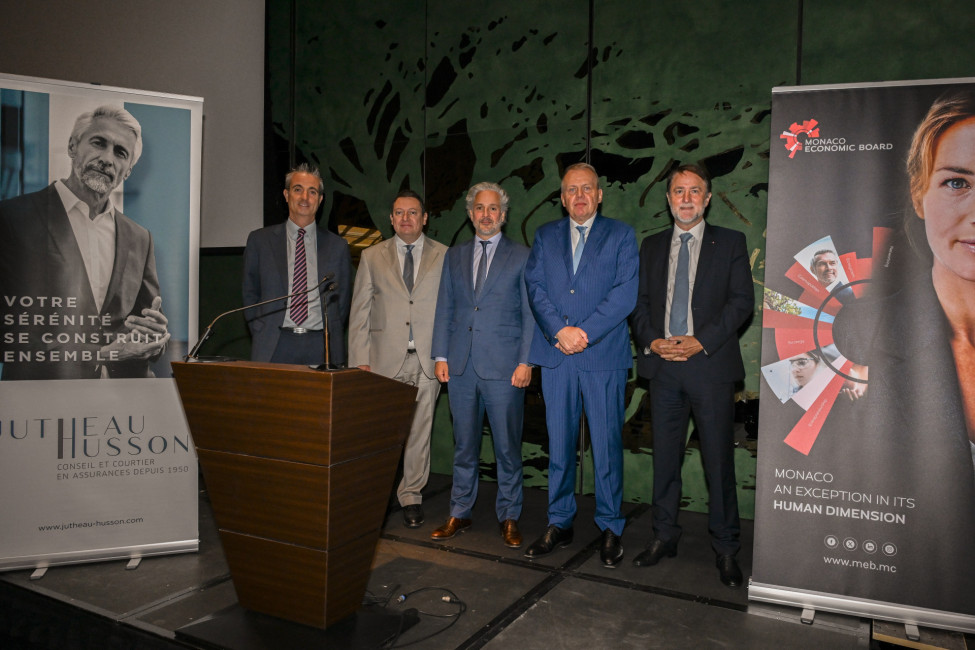
from left to right: Justin Highman, Deputy CEO of MEB; Guillaume Rose, CEO of MEB; Hervé Husson, Chairman of Jutheau Husson; Jean-Pierre Petit, Chairman of Cahiers Verts de l'Économie; Philippe Ortelli, Vice-President of MEB.
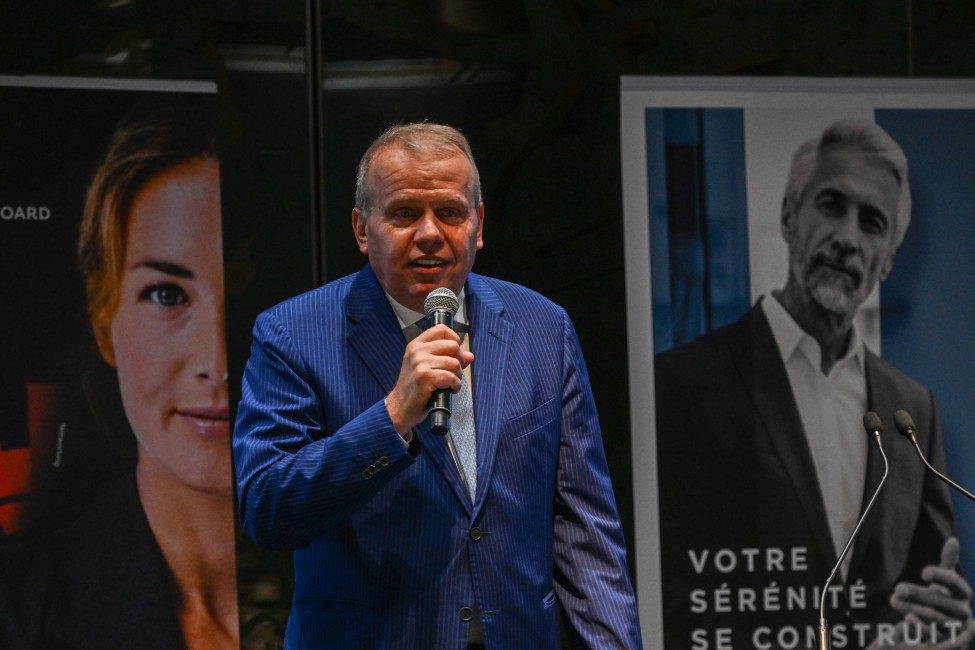
Jean-Pierre Petit, Chairman of Cahiers Verts de l'Économie
